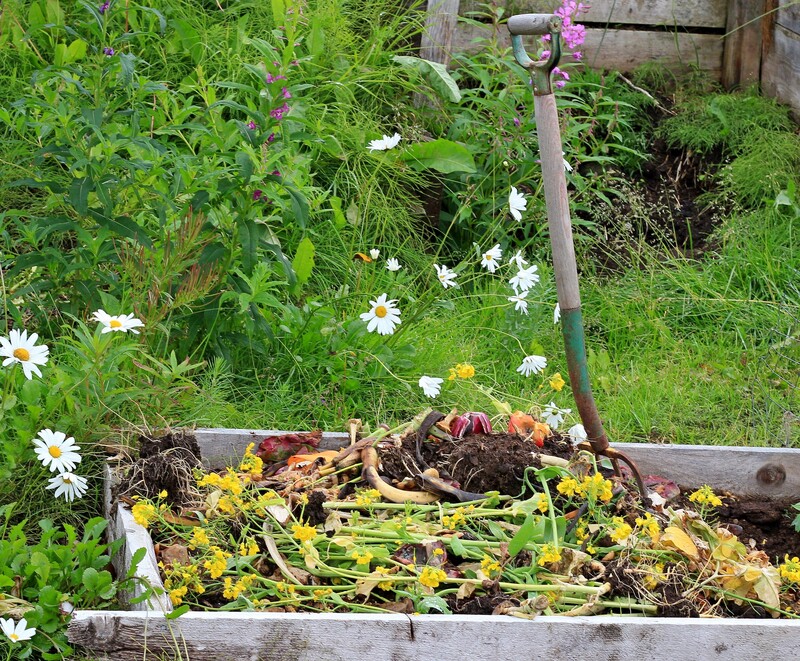Transform Your Household into a Recycling Powerhouse with Easy Steps
Are you ready to make a positive impact on the environment without leaving the comfort of your home? Recycling at home is more than just tossing cans and bottles into a blue bin--it's about adopting a sustainable mindset, reducing waste, and turning your household into a true recycling powerhouse. This comprehensive guide explores practical, effective, and easy-to-implement steps so every family member can contribute to a cleaner planet.
Why Should You Prioritize Household Recycling?
Recycling at home is one of the simplest ways to help reduce pollution, save energy, and conserve natural resources. Every piece of material that is reused or repurposed represents less demand for new raw materials, less landfill waste, and a lighter carbon footprint. Becoming a recycling powerhouse household is an empowering way to make a meaningful difference.
- Reduces landfill waste: Landfills are rapidly filling up. By recycling, your household diverts valuable materials from these overflowing sites.
- Conserves resources: Recycling means fewer trees cut down and less mining for raw resources.
- Less pollution: Manufacturing with recycled materials often produces less air and water pollution.
- Saves energy: Recycled materials generally require less processing energy than virgin resources.
- Supports the circular economy: Proper recycling ensures materials are reused, repurposed, and kept out of the environment.

Easy Steps to Transform Your Home into a Recycling Powerhouse
Let's explore actionable steps, ideas, and habits to boost your home recycling game and make it both fun and effective.
1. Understand What Can and Can't Be Recycled
The first and most critical step towards becoming a recycling household is education. Not all materials belong in your recycling bin, and misplacing them can spoil an entire batch.
- Check local guidelines: Every city or town has its own recycling rules. Look up your municipality's guidelines online to stay updated.
- Common recyclables: Most programs accept glass bottles, plastic containers (types 1 and 2), aluminum cans, paper, and cardboard.
- Know the no's: Items like plastic bags, greasy pizza boxes, certain food wrappers, broken ceramics, and electronic waste often require separate recycling streams or disposal.
2. Set Up a Smart Recycling Station
Make recycling convenient and organized by creating a designated recycling center in your home:
- Location matters: Set up bins in the kitchen, garage, or utility room. The more accessible, the higher your household's compliance.
- Use clear labeling: Labels or color-coded bins help everyone--especially children--sort materials correctly.
- Add specialty bins: Consider boxes for batteries, electronics, or soft plastics that may require special drop-off locations.
Pro Tip: Place a small educational chart or poster above your recycling station as a quick reference guide.
3. Rinse Before You Bin
Food residue is a major contaminant. Take a moment to rinse plastic, glass, and metal containers before tossing them in the recycling. This simple step significantly improves the quality and value of the recyclables.
- Rinse containers like yogurt cups, bottles, and cans.
- Let items dry to minimize mold or odors.
- Crush cans and containers when possible to save space.
4. Recycle Beyond the Curbside Bin
Did you know many recyclable items aren't accepted in standard curbside bins? Be a true recycling leader by utilizing drop-offs and collection days for items like:
- Electronic waste (e-waste): Old phones, chargers, and small appliances.
- Batteries: Household and rechargeable batteries often require special handling.
- Textiles: Drop off gently used clothing and linens at donation centers.
- Plastic bags and films: Most grocery stores accept these for recycling.
- Hazardous materials: Paint, chemicals, and light bulbs have specific recycling protocols.
Tip: Keep a dedicated "specialty recycling box" in a closet or garage for items awaiting proper drop-off.
5. Compost Organic Waste
Composting is an excellent way to recycle food scraps and yard waste, turning them into nutrient-rich soil for plants and gardens:
- Compost fruit and vegetable peels, coffee grounds, eggshells, and tea bags.
- Avoid animal products, cooked foods, and dairy in most home compost bins.
- Use a kitchen countertop compost pail for convenient collection.
- If space or local wildlife is a concern, many cities now offer curbside organics collection.
6. Reduce, Reuse, THEN Recycle
The most effective households go beyond recycling--they practice the three R's in order: Reduce, Reuse, Recycle. Here's how:
- Reduce: Buy products with minimal packaging. Choose glass and metal containers over single-use plastics when possible.
- Reuse: Save glass jars for food storage, reuse boxes for organization, and repurpose old t-shirts as cleaning rags.
- Recycle: Only recycle items as a last resort--if you can't reduce or reuse them first!
Empower Your Family to Become Recycling Champions
Turning your household into a recycling powerhouse is easier when everyone is involved. Here are a few ways to empower and educate your family:
Start Early with Children
- Lead by example: Kids are quick learners and love to mimic good habits.
- Make it a game: Assign points for correct sorting or set weekly recycling goals.
- Craft and upcycle: Encourage creativity by repurposing materials for arts and crafts projects.
Set Family Recycling Goals and Rewards
- Track how much you recycle monthly and set improvement targets.
- Celebrate milestones with a family movie night or fun activity.
- Create a "recycling challenge" with friendly competition between household members.
Educate and Spread the Word
- Share recycling tips and successes on social media.
- Invite friends and neighbors to join your efforts or start a community group.
- Swap tips, resources, and unwanted items (like kids' clothing or books) with others to reduce communal waste.
Remember: Recycling isn't just a home activity but a community effort. The greater the engagement, the bigger the impact!
Common Recycling Challenges and How to Overcome Them
Even the most determined recycling households encounter frustrations. Here's how to tackle typical obstacles:
- Contamination: Mixing trash with recyclables is a common problem. Solution: Ensure everyone knows the dos and don'ts--reinforce with clear labeling and education.
- Limited space: Not every home has room for five bins in the kitchen. Solution: Use stackable, compact bins or set aside a hidden area in the garage or porch for sorting.
- Lack of participation: Sometimes kids or roommates slack off. Solution: Keep it fun and visible, offer small rewards, or rotate recycling duties.
- Unsure about materials: If in doubt, check your city's website or apps like iRecycle for quick answers.
Smart Tools to Boost Your Household Recycling Efforts
Technology can make household recycling smarter and easier than ever. Consider these handy tools:
- Recycling apps: Many apps provide local recycling information, calendar reminders, and sorting guides.
- Barcode scanners: Use apps to scan product barcodes for recycling instructions.
- Smart bins: Some modern bins have sensors to detect recyclables and coach users on correct disposal.
- In-home composters: Compact kitchen composters make managing food scraps simple even in apartments.

Beyond the Home: Be a Community Recycling Powerhouse
Your recycling habits can inspire wider change. Consider these ways to extend your impact beyond your four walls:
- Participate in neighborhood clean-ups: Help organize or join local events to recycle litter from parks or waterways.
- Engage at school or work: Advocate for recycling programs or education drives where you learn and work.
- Advocate for better facilities: Contact local representatives to improve community recycling options or expand accepted materials.
- Join or support local zero-waste groups: Connect with like-minded eco-enthusiasts for knowledge-sharing and support.
Conclusion: Your Path to a Recycling Powerhouse Home
Transforming your household into a recycling powerhouse is a journey that starts with simple steps and evolves into a lifestyle. By understanding what's recyclable, making recycling accessible and kid-friendly, composting organics, reducing and reusing, and continually learning, your home becomes a force for environmental good.
Every piece of waste you divert, every habit you foster, and every neighbor you inspire brings us closer to a sustainable, healthy planet. Start today--make your home a beacon of recycling excellence, and help build a greener future for generations to come.
Quick Start Checklist: Build Your Recycling Powerhouse Today!
- Audit your current recycling habits
- Set up well-labeled bins in key areas
- Educate and empower your household
- Compost food scraps and yard waste
- Bring specialty recyclables to drop-off locations
- Reduce and reuse before you recycle
- Keep learning and improving
Transform your household! With a little effort and creativity, you truly can become a recycling powerhouse and inspire others to do the same.